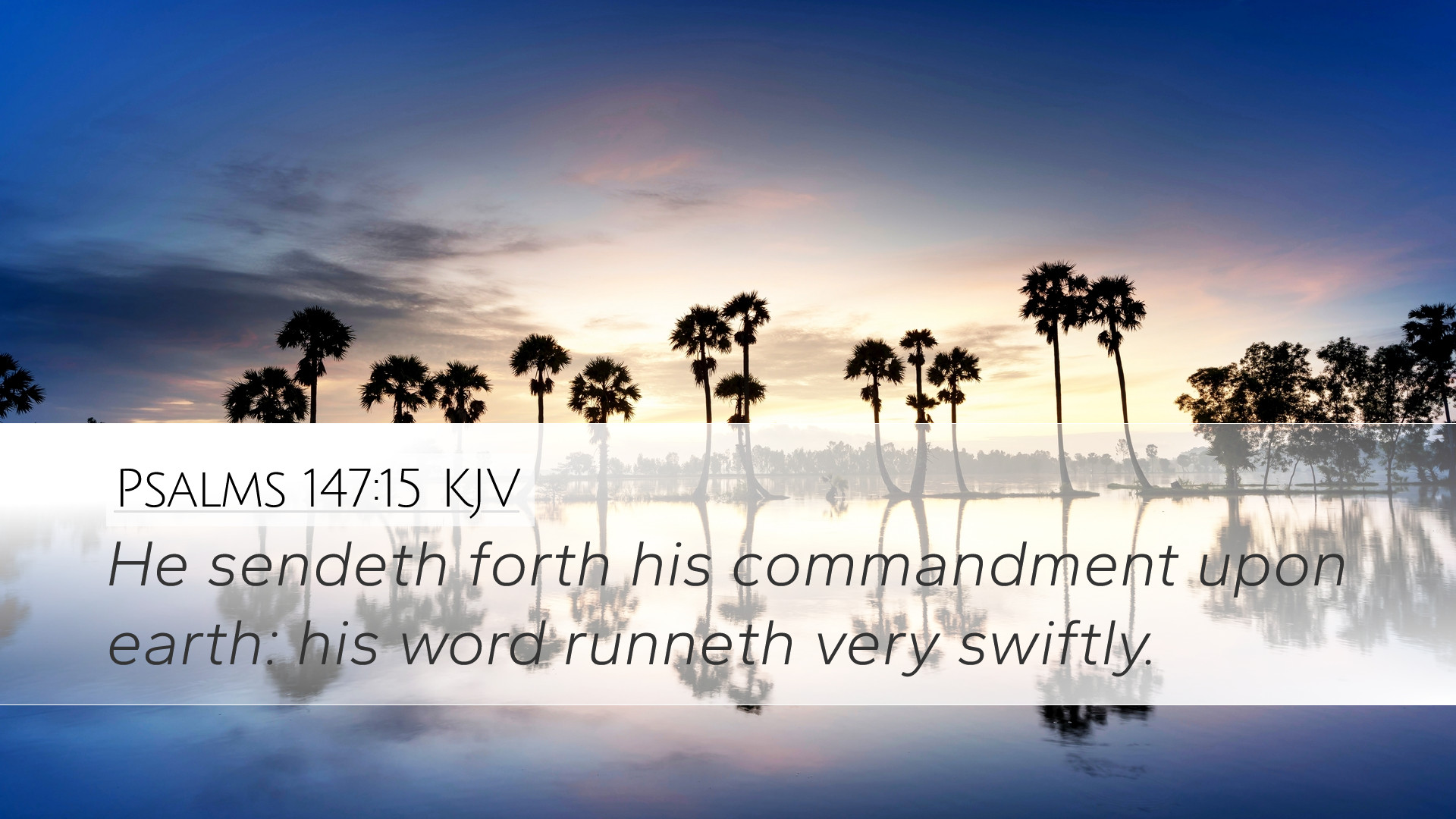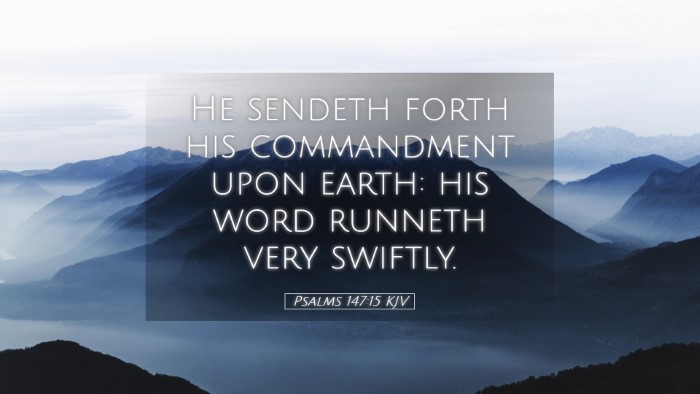Psalms 147:15 - A Comprehensive Commentary
Verse Text: "He sends forth His command to the earth; His word runs very swiftly." (Psalm 147:15, NASB)
Introduction
The Book of Psalms is a collection of poetic reflections and prayers that encompass a multitude of experiences in the believer's life. Psalm 147 stands out as a hymn of praise, emphasizing God's sovereignty, care, and majesty. In verse 15, the psalmist encapsulates the swift and effective nature of God's commands, showcasing the power of His word in creation and providence.
Contextual Overview
Psalm 147 is attributed to the post-exilic period, celebrating God's restoration of Jerusalem and His people. This particular verse serves as a reminder that God is intimately involved in the workings of the world, directly influencing creation through His spoken word.
Exegesis of Psalm 147:15
The verse begins with the affirmation that God "sends forth His command." Such wording emphasizes God's authority and His proactive governance over creation. When God issues a command, it is not merely a suggestion; it aligns perfectly with His will and purpose.
God's Sovereignty and Command
Matthew Henry asserts that God's commands are discovered in the creation and ordering of the world. Just as a king's word dictates the affairs of the kingdom, so God's word governs all creation. The authority behind God's command is absolute, which is a source of comfort for believers.
Albert Barnes elaborates that God's commands may refer to both His creative power and His providential governance. God's will is executed without delay; His command goes forth, and creation responds in accordance with it. This underscores both God’s majesty and the subservience of creation.
The Swiftness of His Word
The latter part of the verse states, "His word runs very swiftly." This highlights not only the speed at which God operates but also the certainty and efficacy of His communication.
Adam Clarke comments on the imagery of speed in this verse. The metaphor of His word running suggests that God’s intentions manifest rapidly and effectively. The divinely decreed order of nature obeys immediately, reflecting the responsiveness of the cosmos to the will of its Creator.
Theological Implications
At its core, Psalm 147:15 reveals profound theological truths regarding the nature of God and His relationship with creation.
-
God's Sovereignty: The verse affirms God's ultimate authority over all things. His command is not confined by time or space; it transcends human understanding.
-
God's Communicative Power: The character of God as a communicator is critical in understanding biblical revelation. Divine communication is never devoid of action; it is always accompanied by fulfillment.
-
Creation's Response: The passage portrays creation as responsive to God's commands. This presents a model of how humanity ought to respond to the divine will with obedience and reverence.
Practical Applications
For pastors, students, and theologians alike, Psalm 147:15 provides numerous practical insights:
-
Encouragement in Ministry: Understanding God's authority can empower leaders to preach and teach boldly, trusting in the power of God's word to effect change.
-
Hope in Troubling Times: During challenging circumstances, the assurance that God's word runs swiftly may offer hope. Believers can trust that God's promises are fulfilled in His timing and purpose.
-
Encouragement of Active Faith: This verse encourages a responsive faith. Believers are called to actively listen for God's commands and to respond swiftly and obediently.
Conclusion
Psalm 147:15 is a profound reminder of the power and authority of God's word. The insights gleaned from public domain commentaries by Matthew Henry, Albert Barnes, and Adam Clarke enrich the understanding of this verse, enabling believers to grasp the implications of God's command in their lives. In acknowledging God's sovereignty and responsiveness, one is compelled to live a life of worship and obedience, recognizing the swift and fulfilling nature of His divine will.


